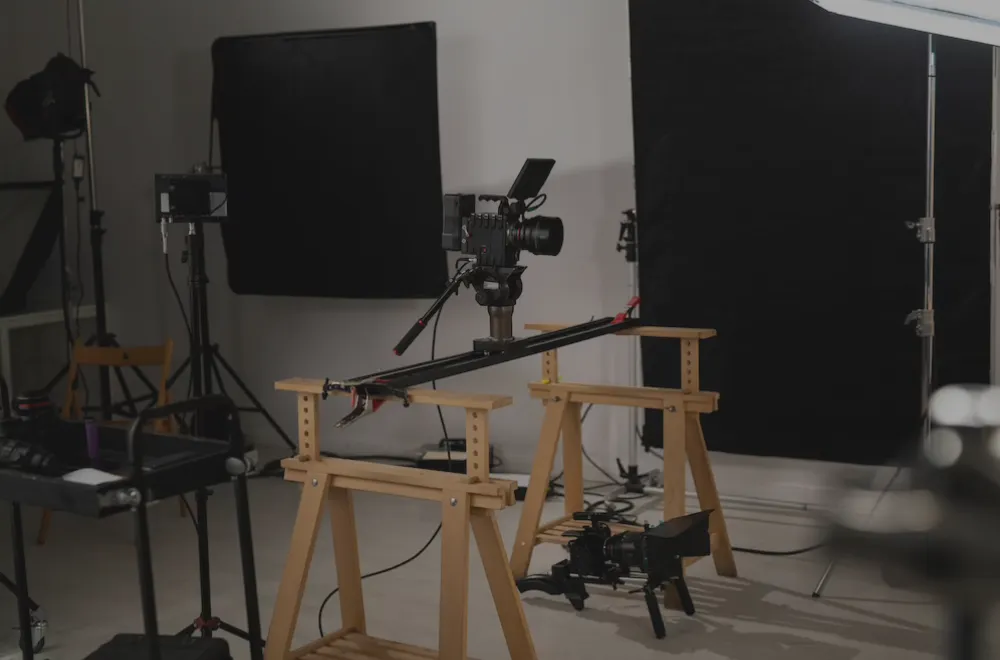In the ever-evolving world of filmmaking and content creation, choosing the right partner for your project can be a game-changer. For creatives, understanding whether a production house or a studio aligns better with their needs is crucial. Both play pivotal roles in bringing stories to life, but they serve different purposes.
This blog will break down the differences, give real-world examples, and help you decide which is the right fit for your creative journey.
What is a Production House?
A production house, also known as a production company, is the creative hub where ideas are developed, organized, and executed. It handles the end-to-end process of content creation, from pre-production planning to post-production editing.
Key Functions of a Production House:
- Developing concepts and scripts.
- Managing logistics, such as hiring talent, securing locations, and arranging equipment.
- Overseeing filming and post-production.
- Delivering the final product, whether it’s a film, commercial, or music video.
Example:
Think of a production house as the director of an orchestra it ensures every piece works in harmony to create a masterpiece. Companies like Warner Bros. Pictures or smaller independent houses like A24 take on entire projects, managing everything from start to finish.
What is a Studio?
A studio is more like the infrastructure where the magic happens. It provides the physical space and technical resources needed for production. Studios are typically equipped with sound stages, green screens, lighting rigs, and other specialized facilities.
Key Functions of a Studio:
- Renting out space for filming or photography.
- Providing technical equipment and resources.
- Offering post-production facilities such as editing suites or sound mixing rooms.
Key Differences Between a Production House and a Studio
When comparing a production house and a studio, their roles and responsibilities differ significantly.
A production house manages the entire production process, from conceptualizing ideas to delivering the final product. They handle creative development, budgeting, casting, location scouting, and post-production. Companies like Warner Bros. and A24 are well-known examples of production houses.
On the other hand, a studio primarily provides the infrastructure and technical support for production.
Studios are equipped with sound stages, green screens, and post-production facilities, making them ideal for controlled filming environments and technical execution.
Examples include Pinewood Studios and Universal Studios, which offer state-of-the-art spaces for filmmakers.
To summarize, while a production house is your go-to partner for end-to-end content creation, a studio is more focused on providing the physical space and resources needed for shooting and editing.
Creatives needing full-service support should consider a production house, while those who already have a production team but need a professional environment can benefit from a studio.
Which Should You Choose?
If You Need End-to-End Creative Support
Opt for a production house if you have a concept but lack the resources, team, or expertise to bring it to life. Production houses are ideal for:
- Advertising agencies looking to create commercials.
- Independent filmmakers wanting help with budgeting, casting, and filming.
- Brands producing content for digital platforms.
Tip: Look for a production house with experience in your niche. For example, if you’re producing a music video, choose a company that specializes in high-energy, visually captivating storytelling.
If You Need Space or Technical Facilities
A studio is the better choice when you already have a production team but require a professional environment. Studios are ideal for:
- Shooting scenes that need controlled lighting or sound.
- Green screen work for special effects.
- Post-production editing or sound design.
Tip: Check the studio’s amenities before renting. Ensure they have the necessary equipment and space to match your project’s scale.
What Creatives Should Consider
Budget:
Production houses often handle everything, which can be costlier upfront but saves you from managing multiple vendors. Studios, on the other hand, allow you to customize what you pay for based on your specific needs.
Project Scope:
If you’re creating a short YouTube ad, a studio rental might suffice. However, for larger projects like a feature film, a production house is indispensable.
Timeline:
Production houses streamline the process, managing tight schedules efficiently. Studios require you to manage your time and resources independently.





